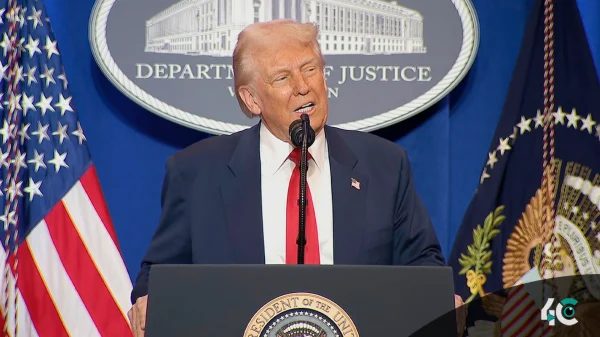A complaint has been launched against the United States Treasury Department, claiming that it illegally provided Elon Musk’s Department of Government Efficiency (DOGE) access to a massive database including sensitive financial and personal information. Unions filed the lawsuit, alleging that the move violates federal privacy rules and puts millions of Americans at risk.
The American Federation of Labor and Congress of Industrial Organizations (AFL-CIO), the country’s largest union group, has sued Treasury Secretary Scott Bessent in federal court, seeking to stop what it calls a “unauthorized, systematic disclosure of personal and financial data.”
“The scale of this intrusion is unprecedented,” the AFL-CIO stated. “Americans who provide information to the federal government should not have their data exposed to Elon Musk or his DOGE team.”
This debate originates from the Trump administration’s intention to put Musk in control of DOGE, a task force tasked with lowering government spending. However, suspicions grew when allegations arose that DOGE had gotten wide access to the Bureau of the Fiscal Service, which processes trillions of dollars in federal payments each year. This includes Social Security payouts, tax refunds, and salaries for government workers.
Senator Ron Wyden recently discovered that Bessent allegedly gave DOGE complete access to the Treasury’s payment system, causing concern among Democratic senators. Union groups have filed a legal complaint alleging that this access includes names, Social Security numbers, bank account information, and other personal identifiers.
In response, Senate Majority Leader Chuck Schumer pledged to pursue measures to prevent illegal access to government financial systems. “DOGE is not a legitimate federal agency,” Schumer insisted. “It has no authority to control federal spending or override existing laws.”
Senator Elizabeth Warren also voiced concern, claiming that Musk now has the capacity to gather sensitive data and potentially influence federal payments. “Millions of Americans’ personal and financial details are now at risk,” according to Warren. “This is an unacceptable breach of privacy.”
The Treasury Department has yet to provide an official response to the case. Internal sources suggest that the Treasury Department might limit DOGE’s access to read-only capabilities, akin to auditors. Even this level of access, according to critics, is excessively broad and susceptible to abuse.
The debate continues, with legal challenges increasing and congressional leaders calling for swift limitations. As the discussion heats up, the future of DOGE’s role in government financial operations remains unknown.














































